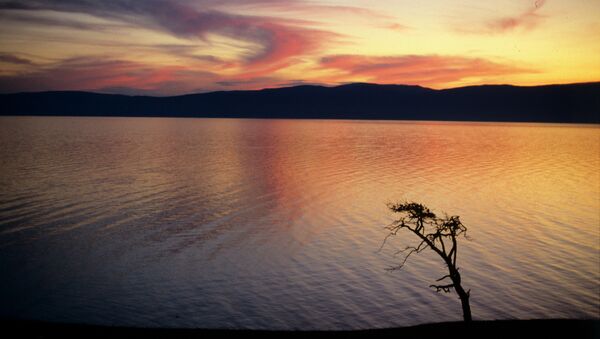The water level at Lake Baikal, the world’s largest freshwater lake, continues to decrease, a representative of the Russian Commission on Prevention of Emergencies told RIA Novosti.
Since yesterday, the water level has fallen to 455.88 meters (1,493 feet), which is lower than the critical mark of 456 meters by 12 centimeters (5 inches).
At the end of the 20th Century Lake Baikal experienced a water shortage that may last around 22-24 years. During this period, the lake loses between 10 and 15 percent of its annual water inflow.
Currently, the level of water in Lake Baikal is controlled by Resolution 234 of the Russian Government passed on March 26, 2001. The document sets the acceptable minimum level of water at 456 meters.
Earlier this year, a total of 681 people in 11 communities in the nearby Republic of Buryatia had problems with their water supply due to the falling water levels, according to Buryatia’s Department of Environmental Resources. Despite the water shortage in Baikal, the Irkutsk and Buryatia regions, the two regions between which the lake is located, continue to use water from the lake.
Lake Baikal, declared a UNESCO World Heritage site in 1996, contains 20 percent of the world’s total freshwater reserves.





